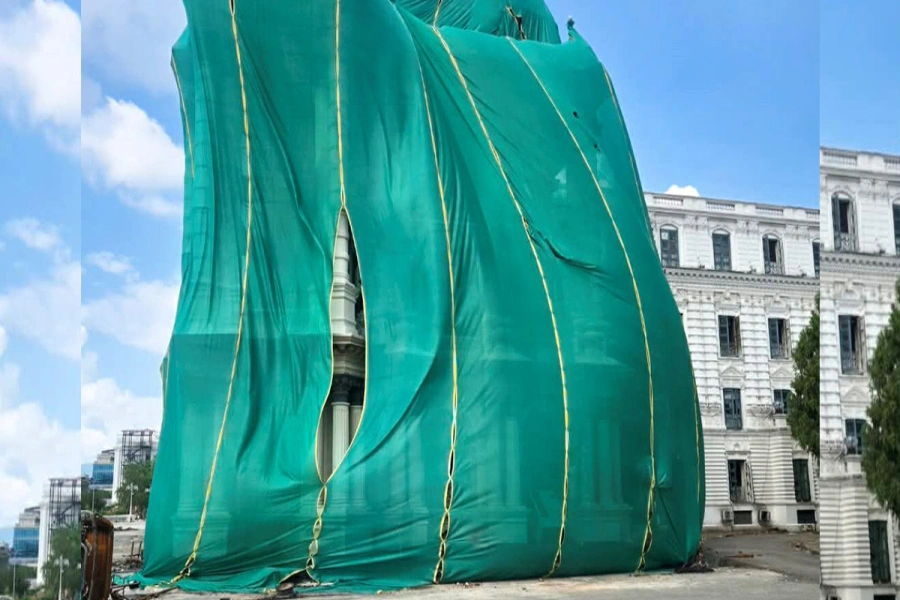In a welcome development, Nepal Airlines Corporation (NAC) has taken a significant step towards alleviating its financial woes by paying more than Rs 554 million to the Employees Provident Fund (EPF) and Citizen Investment Trust (CIT). The NAC, which has been grappling with financial challenges for years, paid back Rs 430.09 million to the EPF, including Rs 23.20 million in interest, and Rs 100 million to the CIT. This payment follows the settlement of Rs 830.9 million at the close of the fiscal year 2022/23 and a prior payment of Rs 2.942 billion to the EPF and CIT in mid-April. While this is undoubtedly a positive development, it arrives amidst an ambitious plan put forth by Tourism Minister Sudan Kiranti to acquire up to 10 new aircraft in the current fiscal year. The NAC's long-standing financial struggles are well-documented. Plagued by poor management and frequent political intervention, the NAC has faced criticism over alleged corruption, embezzlement, and financial misappropriation in its aircraft procurement processes. The NAC currently owes a colossal debt of around Rs 47 billion, with only about three percent of the loans cleared in recent years. The burden of servicing loan interest, which stands at a staggering 9.5 percent, continues to strain the NAC's finances, ultimately affecting its financial health.
Despite nominally improving its revenue generation, the NAC's operations have been significantly hindered by its financial constraints. Out of a fleet of 13 aircraft, only six are presently in operation, leaving seven grounded. This situation has a direct impact on the airline's ability to meet the growing demand for air travel. Additionally, a recent report by the Office of the Auditor General raised concerns over the inadequate protection and documentation of the NAC's physical assets, further contributing to its financial instability. Amidst these circumstances, we believe that Minister Sudan Kiranti's announcement of plans to purchase up to 10 new aircraft this fiscal year is ambitious and should be approached with caution. While the desire to expand the NAC's fleet and provide better services to the public is commendable, it is crucial to ensure that this expansion is well-planned and efficiently managed. The NAC must prioritize responsible financial management and adhere to a robust business plan to avoid further straining its already fragile financial position.Kiranti's rationale for this ambitious move is driven by concerns over increasing airfare costs during festive seasons such as Dashain and Tihar. He highlighted the surge in air ticket prices due to rising fuel costs, coupled with the imposition of a 13 percent Value Added Tax (VAT). In this context, the government's intervention to regulate the aviation industry is indeed warranted.
Tourism minister directs NAC to expedite process to purchase ai...

However, the approach should be balanced and considerate of the NAC's existing financial burdens. Minister Kiranti's argument that expanding the NAC's fleet is essential for attracting tourists and controlling airfare is valid to a certain extent. However, it must be noted that the NAC's financial struggles stem from deeper issues, including mismanagement and corruption in the past. The process of acquiring new aircraft should be transparent, accountable, and free from any irregularities that have plagued the corporation's previous endeavors. As we welcome the positive development of the NAC making partial payments towards its outstanding loans, it is a reminder of the challenges that the corporation faces. The responsible authorities must prioritize efficiency, transparency, and accountability in all financial matters. Furthermore, it is essential for the NAC to focus on optimizing its operations and ensuring that each aircraft is a valuable asset that contributes to its financial health. The well-being of NAC is not only crucial for the aviation industry but also for the country's reputation as a tourist destination. As the NAC moves forward with plans to expand its fleet, it is imperative that it proceeds with prudence and ensures that every step is taken to rectify past mistakes. Only through diligent efforts and responsible decision-making can the NAC secure a brighter future for itself and the aviation industry as a whole.






































